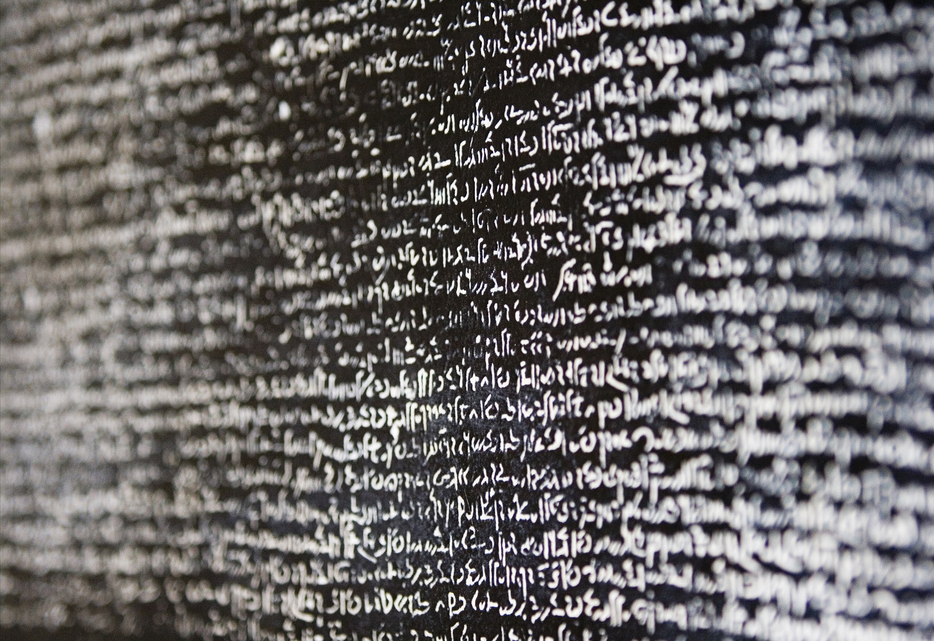Introduction: Silence to Speech
by Rose Lemberg

Rosetta Stone: A recreation of the original, housed at Emory University's Carlos Museum. Image by Brett Weinstein.
Those who cross boundaries live in a place between silence and speech. Changing language, culture, identity involves a moment of fear, of estrangement - even from the native language, the former self. Where can we go from that wordlessness? And once we cross over, how do we give our experiences voice to share it with others?
Some of the most inspired stories of such boundary-crossings can be found in the literature of the fantastic. Ursula K. Le Guin’s novel Always Coming Home tells the story of North Owl, a girl who grows up with her mother's people in a society modeled on the native cultures of Northern California. As a young woman, she falls in love and leaves to live with her father's people, who are patriarchal and militaristic; eventually she returns home with her daughter. She takes up a new name, Stone Telling. Stones are silent, but Stone Telling talks – she tells the stories of her travels, the bittersweet experiences of living among people very different from her own. I felt that the name Stone Telling embodied the kind of multicultural, liminal vibe I was hoping to showcase in a new poetry magazine.
The first issue of Stone Telling begins with a new poem by Ursula K. Le Guin herself, a poem about a silenced voice. Inspired by this breathtaking poem, I combed my mailbox for other pieces that touched in different ways upon silence and speech; and I am thrilled to be able to share my treasures with you. To name but a few: Karen Neuberg’s poem shows us marionettes who “began to speak/and heard one another utter/ideas we’d never imagined/in throaty timbres that parsed thoughts like a curtain of forest”; J.C. Runolfson’s Robert Cornelius learns “the shape of things come and gone / and how to speak it”. The narrator of Peer Dudda’s heartbreaking ASL/English video poem is in search of not only a voice, but belonging. Shweta Narayan talks of split tongues – her two languages, two cultures, in the issue’s final poem Nagapadam.
Stone Telling poets speak in many voices. Some write mainstream literary poetry, others work primarily in the speculative field; some have a venerable record of publications, while others are appearing in print for the first time. I envisioned Stone Telling as a venue in which diversity could flourish. The issue you are about to read wouldn’t have been possible without the poets who sent me their wonderful, thought-provoking words, without the non-fiction columnists who eloquently wrote about poetry from lands, languages, and times other than our own, and without the reviewers. Thank you. And many thanks to you, who are now reading these words. I hope you will enjoy this issue, and journey with us across boundaries for many Stone Telling issues to come.
Happy reading!
Rose Lemberg, editor

